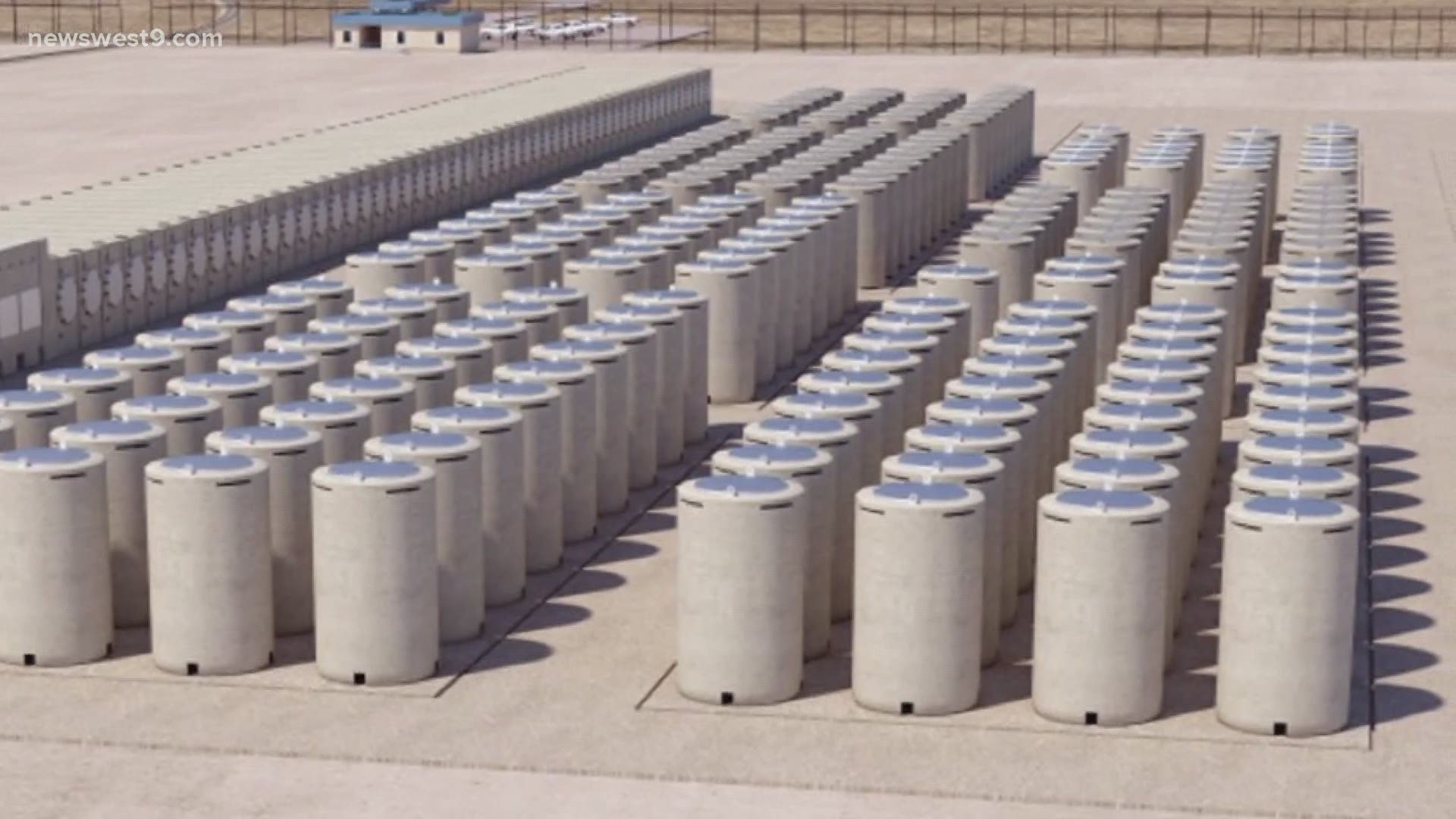MIDLAND, Texas — House Bill 2692 is no more. The bill to ban high levels of nuclear waste has been derailed. It was co-authored by Representative Brooks Landgraf. Representative Tom Craddick has not been in favor of the bill from the outset.
Other leaders in the community are also in opposition to the bill. This includes Tommy Taylor, director of oil and gas development for Fasken Oil and Ranch.
A license to store high levels of radioactive waste is inching its way towards approval. However, Taylor felt that the bill introduced by Landgraf wouldn't be able to do much.
"It had a ban on high-level waste," Taylor said. "We just didn’t feel like, talking to the experts and attorneys around the country, that it was going to be something that would uphold in a court of law because the federal government is responsible for high-level waste."
Taylor believes that the bill would need a re-write before it could potentially be passed.
"What we wanted to say in the bill when we were trying to negotiate this was that that language doesn’t speak to the states right," Taylor said. "It doesn’t reference the nuclear waste policy act correctly."
Landgraf is still pushing back. He had this to say in a statement:
I’m disappointed to report that HB 2692, a bill I filed at the request of my constituents in Andrews County, was derailed by a point of order called by Representative Craddick on the House floor Wednesday night. The point of order was called on the bill analysis, which is a procedurally mandated item that accompanies all bills, but that is not authored by state legislators. The point of order stated the bill analysis failed to provide specific, detailed analysis about one minor portion of the bill. The point of order was not on the legislation itself. While this bill was requested and supported by my Andrews constituents, I was proud to also work on agreed-to language with the governor of Texas and a Midland oil and gas company.
Language aside, the issue still stands. There is a chance high levels of radioactive waste could be stored in Texas, and Taylor is doubling down on his concerns.
"If it gets moved out here, even on interim basis, and an interim basis means 40 years, 80 years, 120 years, 200 years they all believe that this will become the de-facto permanent repository," Taylor said.
Another issue, when looking at similar models to store high levels of waste, Taylor said that bringing it to a populated community is a big mistake.
"We just think that’s a bad idea and had done some research on it and the international community, they have a guidebook for storing spent fuels on an interim basis, and they basically said don’t put it in the middle of an oil field and when we consulted with those people they said we were talking about a small oil field not one of the largest in the world," Taylor said.
Waste Control Specialists President and COO Dave Carlson had this to say in a statement:
Our interests and the state’s interests are aligned and we remain committed to working closely with our community, our regulators and the State of Texas to ensure the facility remains viable, safe and an asset to the state and the state’s economy.

